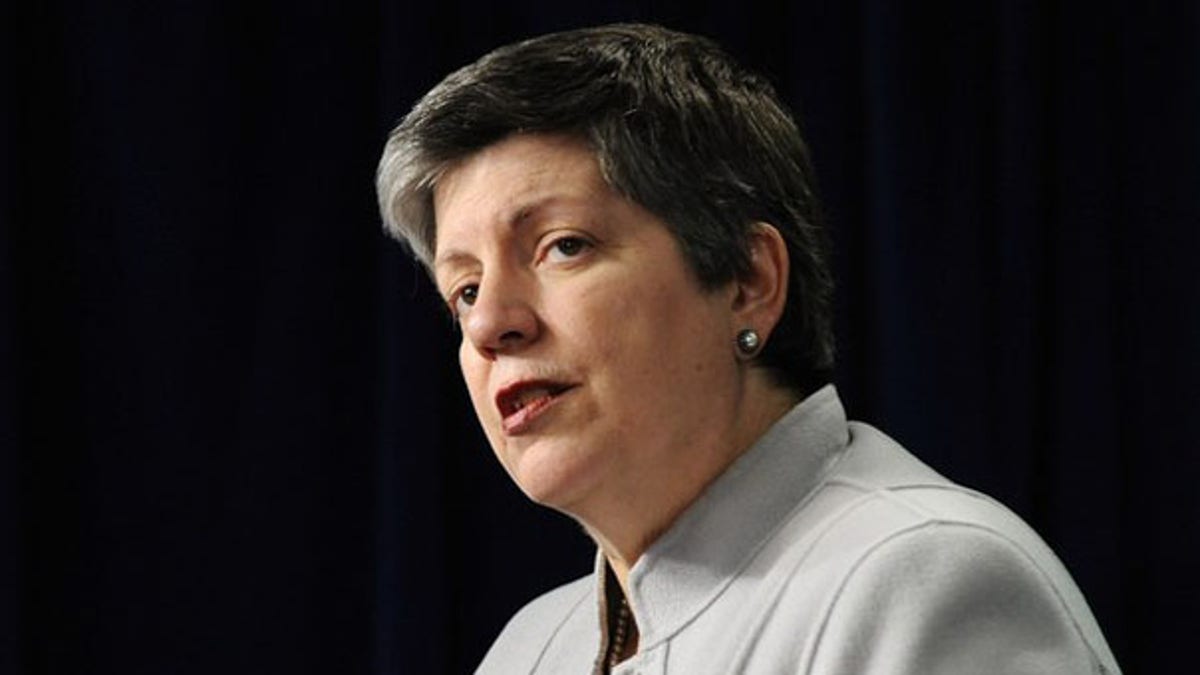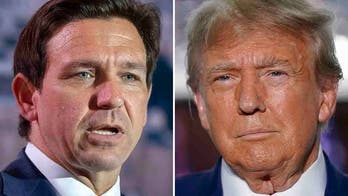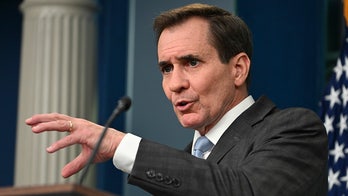
Secretary of Homeland Security Janet Napolitano speaks to reporters Dec. 7 in Washington. (Reuters Photo)
Homeland Security Secretary Janet Napolitano conceded Monday that airline security failed in allowing a Nigerian on a terror watch list and allegedly armed with explosives onto a Detroit-bound flight, a turnaround from her declaration a day day earlier that "the system worked."
The secretary's comment Sunday was widely criticized, given that suspect Umar Farouk Abdulmutallab was foiled because his explosive mixture did not properly detonate and he was stopped in his tracks by vigilant passengers.
The suspect, who carried the explosive in his underwear, passed through security at two airports -- in Nigeria and Amsterdam, Netherlands. Plus he was not on any "no-fly" list, even though he was on a massive federal database of people with suspected ties to terrorists and his father apparently had warned U.S. embassy officials in Nigeria about his son.
"Here, clearly, something went awry. We want to fix that problem," Napolitano told Fox News on Monday.
She said officials are doing a complete review to determine what needs to change to prevent such a passenger from clearing security in the future.
"No secretary of homeland security would sit here and say that a system worked prior to this incident which allowed this individual to get on this plane," Napolitano said.
Her comments marked a change in tone from the day before, when she lauded security officials' handling of the affair.
"I think the important thing to recognize here is that once this incident occurred, everything happened that should have," she said on ABC's "This Week" on Sunday. "We trained for this. We planned for this."
On CNN's "State of the Union," she said: "One thing I'd like to point out is that the system worked."
The statement was swiftly condemned. Rep. Peter King, R-N.Y., told CBS' "Face the Nation" that the system "failed in every respect."
On Fox News, Napolitano clarified Monday that she was referring to security precautions that went into effect for other flights following the incident in Detroit.
"My comment was that once this incident occurred we were able to immediately notify the 128 flights already in the air from Europe," she said. "We were able to immediately institute new security precautions. ... And we were immediately able to provide additional security for the traveling public."
She said the current system was in place before she took the helm at the Department of Homeland Security, and that she was "familiar" with that system. She said officials will now look "backwards" to determine what went wrong.
"This individual was able to get on this plane with this material. That should not have happened," she said.
Some lawmakers continued to express concern Monday about the administration's response to the incident, and warning signs that were missed.
Harold Demuren, the head of the Nigerian Civil Aviation Authority, said Abdulmutallab paid cash on Dec. 16 for the $2,831 round-trip ticket from Lagos, Nigeria, to Detroit via Amsterdam -- a ticket that came from a KLM office in Accra, Ghana. Demuren said Abdulmutallab checked into his flight with only a small carryon bag.
King said that alone should have qualified the passenger for "secondary screening."
"What more do you need to at least give the guy a pat down?" he told Fox News, adding that Napolitano needs to show some "intensity" over the attempted attack.
"Janet Napolitano has now told two different stories in two days. First she said everything worked. Now she says it didn't work," King said.
"Success is stopping these attacks, not responding to them," Rep. Pete Hoekstra, R-Mich., told Fox News.
Law enforcement officials believed the suspect tried to ignite a two-part concoction of the high explosive PETN and possibly a glycol-based liquid explosive, setting off popping, smoke and some fire but no deadly detonation.
An apparent malfunction in a device designed to detonate the PETN may have been all that saved the 278 passengers and the crew aboard Northwest Flight 253. No undercover air marshal was on board and passengers and crew subdued the suspect when he tried to set off the explosion. He succeeded only in starting a fire on himself.
Security experts said airport "puffer" machines that blow air on a passenger to collect and analyze residues would probably have detected the powder, as would bomb-sniffing dogs or a hands-on search using a swab. Most passengers in airports only go through magnetometers, which detect metal rather than explosives.
Abdulmutallab was treated for burns and was released Sunday to a prison 50 miles outside of Detroit.
The Associated Press contributed to this report.




